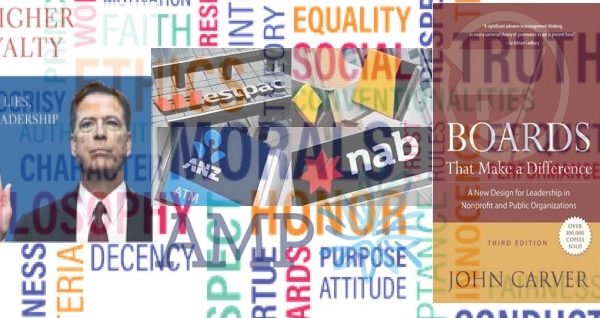For all his qualities we learned more from his mistakes. That is the nature of learning – we each learn more about ourselves, too, from our mistakes.
We learned from him and from Abbott about how not to run a country, or a company. So there are great lessons for CEOs and corporate affairs folk.
Boardrooms and leaders grapple with ongoing and insurmountable problems – options for growth, the environment, HR, risk, government policies (or lack of them). The art is in unity of purpose, civil debate, collaboration and compromise. Crises often occur when these fail.
Good leaders learn techniques.
Typically, a new leader needs to quickly lay out a broad manifesto of how he/she will lead. That’s how we create followers. Not the detail, which can become a millstone, and can come later, but the broad visionary concepts. And then we need to keep repeating these central themes, which also separates us from our predecessor. This is basic change management. Stakeholders need to know what to expect.
That, plus a sense of urgency, is critical for bending people to a common task. Turnbull failed to do this, which meant that externally he was saddled almost from the start with a disappointed public, and internally with unmanaged simmering frictions. As Michelle Gratton wrote when he ousted Tony Abbott in September 2015,
“When a leader wins an election, he or she arrives with a set of commitments…Turnbull’s pre-coup public pitch was about what was wrong with Abbott, not future directions… We have watched Turnbull for years so we think we know him. But the prime ministerial beast can turn out quite different in nature from the aspirant. The performances of the last three prime ministers were worse than expected; John Howard exceeded expectations.”
Once a manifesto is understood, plus creating a sense of urgency, both of which are often repeated, there’s the need to manage debate.
As Bret Stephens (NTY commentator) said when he spoke in Sydney almost a year ago about the Dying Art of Disagreement, quarrelling conducted well is good.
“Socrates quarrels with Homer. Aristotle quarrels with Plato. Locke quarrels with Hobbes and Rousseau quarrels with them both. Nietzsche quarrels with everyone. Wittgenstein quarrels with himself.
These quarrels are never personal. Nor are they particularly political, at least in the ordinary sense of politics. Sometimes they take place over the distance of decades, even centuries.
Most importantly, they are never based on a misunderstanding. On the contrary, the disagreements arise from perfect comprehension; from having chewed over the ideas of your intellectual opponent so thoroughly that you can properly spit them out.
In other words, to disagree well you must first understand well. You have to read deeply, listen carefully, watch closely. You need to grant your adversary moral respect; give him the intellectual benefit of doubt; have sympathy for his motives and participate empathically with his line of reasoning. And you need to allow for the possibility that you might yet be persuaded of what he has to say.”
Does PM Morrison have the strength to create function from dysfunction? Our hope is that ScoMo can do this, in which case I think he needs to follow the above path: a manifesto, a sense of urgency, plus managing debate.
Managing debate when facing an election will take strength, purpose, wisdom and some bluff. His two main stakeholders – most of his party and the public – badly want high quality and efficiently resolved debates. His two challengers are the right-wing faction in this party and the Opposition.
I believe, from advising other leaders and making my own mistakes, that he needs to follow the above path that Turnbull never did.
Read also: History Lessons for Managers- The Economist





